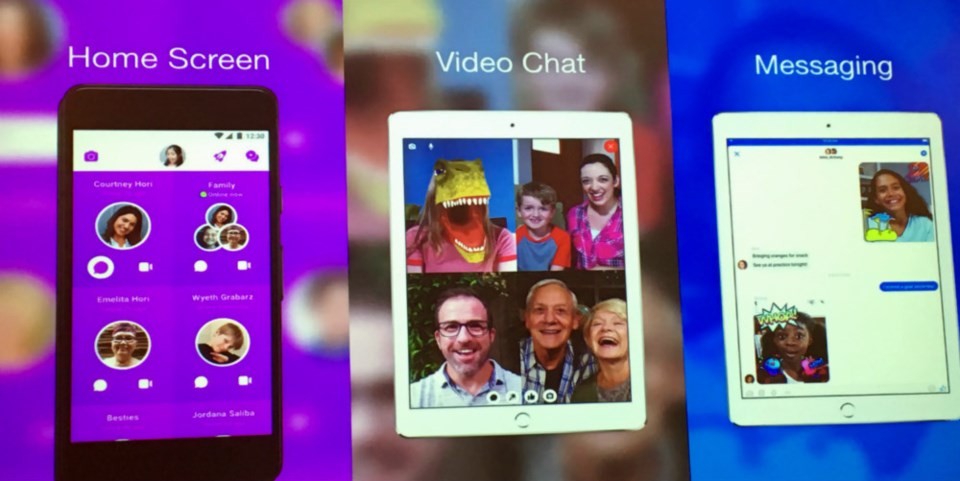Facebook Messenger Kids launches in Canada and Peru today and has generated controversy since it became available in the U.S. in December, 2017.
Facebook product management director Loren Cheng says the app was developed with input from 400 families and gives parents more control to keep their kids safe online.
Parents set up the app through their Facebook account and have the final say on approving their child’s contact requests. “There are no ads, no in-app purchases and the app is free to download,” says Cheng.
Kids can text, video chat and play games using filters, stickers and emojis. The texts cannot be deleted, which means the parents can monitor their children’s conversations but the video chats are not archived. Pictures kids send through Messenger Kids are screened with a filter to identify inappropriate content and catch it before it is posted.
Kids can report or block others and Facebook introduced a sleep mode in April that allows parents to set times where Messenger Kids will gradually shut down at bedtime or mealtimes for example.
Parenting expert and author Alyson Schafer says the app applies parenting principles to technology, providing a chance for parents to teach their kids how to use social media and be “good digital citizens.”
In the U.S., the Campaign for a Commercial-Free Childhood and MomsRising sent an open letter to Facebook CEO Mark Zuckerberg urging him to discontinue Messenger Kids.
The letter is signed by 21,000 educators, health professionals, parents and caregivers pointing to research demonstrating the harmful effects of digital devices and social media on the development of children and teens.
Messenger Kids is available for download on Google Play and Apple’s App Store in English, Spanish and French.



